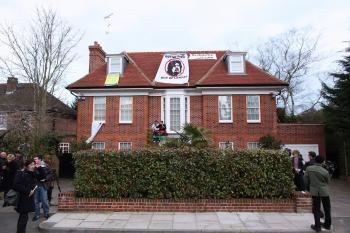Yemen Parliament approved a state of emergency on Wednesday, giving President Ali Abdullah Saleh extra powers for a month to quell the uprising.
The Parliament, dominated by Saleh supporters, passed the law with only 164 out of 301 members present.
Emergency law suspends the constitution, imposes a curfew, permits media censorship, bans street protests, and security forces can arrest and detain without a judicial process.
The state of emergency was announced by the national security council Friday after tens of thousands of anti-Saleh protesters in the capital Sana'a were shot at by pro-regime forces. A total of 52 people were killed in the deadliest day in two months of demonstrations.
On Monday, three army generals broke rank with Saleh and defected to the opposition joining tribal leaders and diplomats. According to IBN, tanks of opposing army divisions entered the capital to confront Saleh’s loyal republican guards.
Tensions are likely to continue to rise as protesters have called for a massive march to the presidential palace for Friday.
The Parliament, dominated by Saleh supporters, passed the law with only 164 out of 301 members present.
Emergency law suspends the constitution, imposes a curfew, permits media censorship, bans street protests, and security forces can arrest and detain without a judicial process.
The state of emergency was announced by the national security council Friday after tens of thousands of anti-Saleh protesters in the capital Sana'a were shot at by pro-regime forces. A total of 52 people were killed in the deadliest day in two months of demonstrations.
On Monday, three army generals broke rank with Saleh and defected to the opposition joining tribal leaders and diplomats. According to IBN, tanks of opposing army divisions entered the capital to confront Saleh’s loyal republican guards.
Tensions are likely to continue to rise as protesters have called for a massive march to the presidential palace for Friday.

